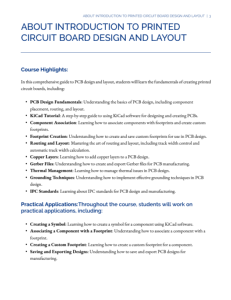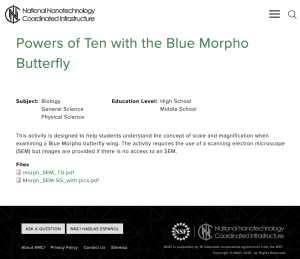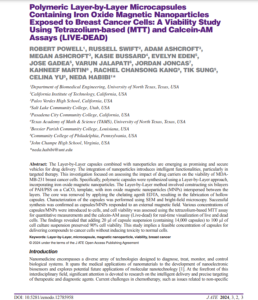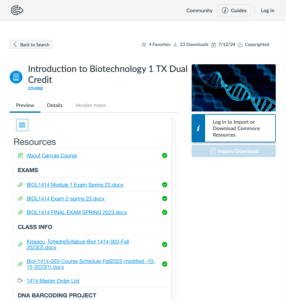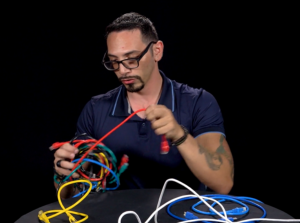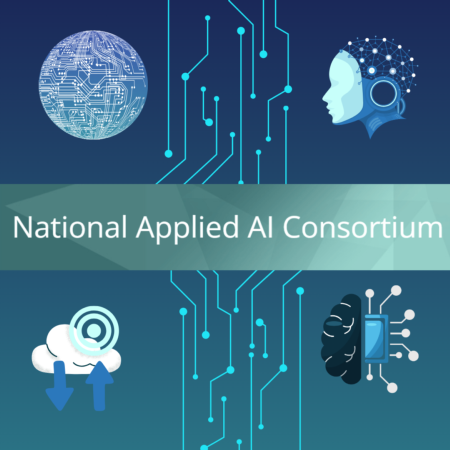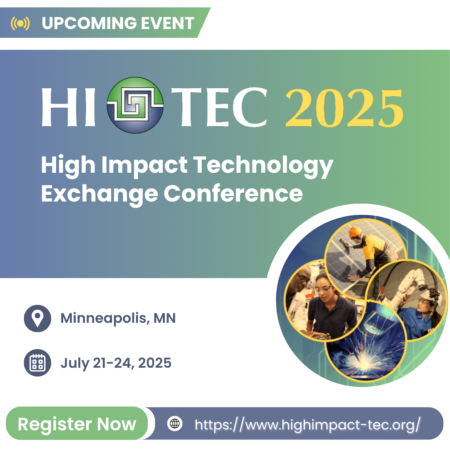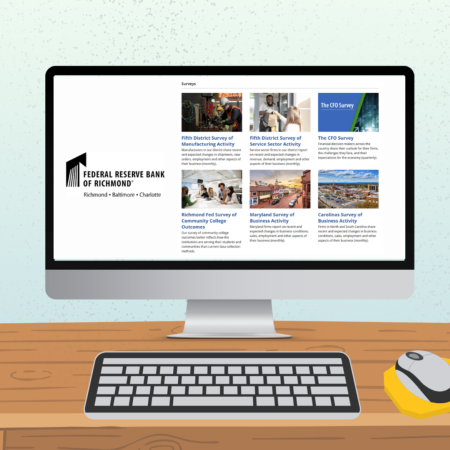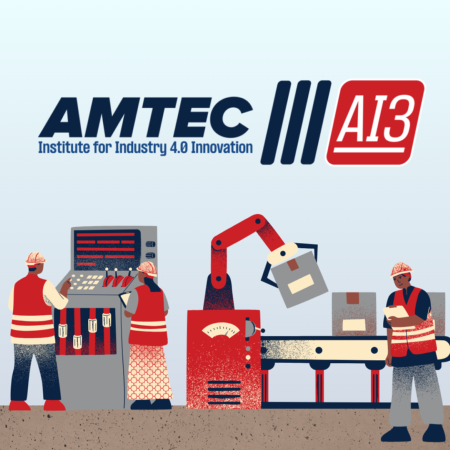ATE is Advanced Technological Education. With an emphasis on two-year colleges, the National Science Foundation's ATE program focuses on the education of technicians for the high-technology fields that drive our nation's economy.
Faculty Development Workshop: IoT Cloud Workshop
Workshop
July 7 Online
This workshop is funded and tailored specifically for community and technical college faculty members wishing to expand their knowledge, earn an industry certification, and strengthen their ability to incorporate new cybersecurity content in their community college curriculum. This workshop is not intended for students or other non-faculty participants.
About the Workshop:
This workshop is tailored for community college educators looking to incorporate Azure IoT technologies into their IT and cybersecurity programs. Participants will explore Azure IoT solution architectures, including IoT Hub, Digital Twins, IoT Edge, and more, gaining hands-on experience with key IoT applications like conditional monitoring, predictive maintenance, and asset tracking. By the end of the workshop, educators will be equipped with practical tools to enrich their curriculum and prepare students for careers in the expanding field of IoT.
Workshop participants are expected to actively engage in the workshop by participating in the hands-on activities and interactive discussions.
(View More)
Introductory Summer CyberCamp
Student Event
July 7 Fairfield, CA
The Bay Area Cyber League in conjunction with the Bay Area Community College Consortium are hosting this week-long, in-person Introductory Summer CyberCamp for high-school and community college students.
Ideal campers will have basic computer skills, but little to no cybersecurity experience is necessary.
(View More)
Introductory Summer CyberCamp
Student Event
July 7 Petaluma, CA
The Bay Area Cyber League in conjunction with the Bay Area Community College Consortium are hosting this week-long, in-person Introductory Summer CyberCamp for high-school and community college students.
Ideal campers will have basic computer skills, but little to no cybersecurity experience is necessary.
(View More)
MATE Underwater Robotics Student Camp
Student Event
July 7 Kingsport, TN
Each student or team will be tasked with creating an ROV that meets specific design criteria, focusing on functionality, stability, and maneuverability. Students will then test their ROVs in a controlled aquatic environment, applying their creations to complete a series of exciting challenges, such as navigating through obstacles, retrieving objects from the bottom, and capturing underwater footage. This comprehensive experience will not only enhance their technical skills but also encourage teamwork, problem-solving, and creativity.
(View More)
Implications of Artificial Intelligence for Educators
Workshop
July 8 Huntsville, AL
This workshop empowers university, community college, and high school faculty, staff, counselors, and academic advisors with the knowledge and tools to effectively integrate AI into their teaching practices and curriculum development. Participants will explore practical applications of AI, including lesson planning, designing engaging and interactive content, creating dynamic assessments, and customizing individualized student learning experiences. Additionally, the workshop will highlight how to enable students to use AI in ethical and productive ways across various disciplines.
Through hands-on activities, collaborative projects, and real-world examples, faculty will gain a deeper understanding of AI’s transformative role in education. They will also explore new forms of student engagement, ensuring responsible AI use in both teaching and learning environments. This workshop prepares educators to harness AI to enhance classroom instruction, streamline administrative tasks, and equip students with the skills needed to navigate an AI-driven future.
(View More)
2025 STEM Educator Solar Institute at Madison College
Workshop
July 8 Madison, WI
The goal of the STEM Educator Institutes is to provide STEM Educators with renewable energy lessons, classroom equipment, and a unique hands-on learning experience to take back to their students. The events are funded by the CREATE Energy NSF ATE National Center. Any STEM educator of middle school through college is invited to apply.
The Solar Institute Includes:
- Hotel Accommodations for two nights in downtown Madison
- Breakfast and lunch provided each day
- $600 Stipend paid to each participant upon completion of the institute
- Equipment awards valued at up to $1200 available to each participant funded by the CREATE Energy NSF ATE National Center
Workshop Location: Madison College Commercial Avenue Campus
(View More)
Intro To Underwater ROV Engineering Workshop
Workshop
July 9 Brighton, MI
Introduce teachers to Underwater ROV design and fabrication. Participants leave with a fully functioning ROV that we'll test in the pool before concluding the workshop.
No experience is necessary. Presenters will start from "Square One" and teach all participants to build and operate entry level ROVs. Upon completion of the workshop, participants are eligible to lead student teams for our ROV Student Competition (Underwater IVD), and to receive 99h grant funding from MDE to support their team.
(View More)
BRICCs Research Data Management Conference
Conference
July 9 Alexandria, VA
Building Research Innovation at Community Colleges - Research Data Management (BRICCs-RDM) is a unique conference that leverages the growing BRICCs community to explore research data management practices that support the growing cyberinfrastructure (CI) landscape and understand how RDM can be used to advance CI-enabled scientific use-cases in academic research. During this conference, organizers hope to highlight the work done by different stakeholders, and help the community learn from these efforts. The conference seeks to develop clear strategies to ensure support and access from all stakeholder communities who produce and consume data on CI resources and inform RDM practices at campus, regional, and national levels to facilitate technological advances and innovation in research.
BRICCs workshops bring together a vibrant community of stakeholders, ranging from R1 universities to smaller four-year schools and community colleges, to learn about current problems, foster collaborations, facilitate solutions, and present conclusions to the broader research community. The approach serves as a cooperative space for discourse regarding challenges in the progression of CI adoption in educational and research settings. The RDM conference brings this community together to discuss Research Data Management practices.
(View More)
AMTEC Institute for Industry 4.0 Innovation (AI3)
Workshop
July 10 Owensboro, KY
Join AMTEC for a 2 day training with hands-on programs featuring nationally recognized trainers and equipment focusing on Industry 4.0 skills. This training is for secondary and post-secondary instructors who are preparing students to enter careers in advanced manufacturing.
Sessions Include:
- Industry 4.0 concepts and training
- Competency based education
- Virtual reality
- Using these tools in the classroom
- Funding resources
You will also gain access to virtual monthly community-of-practice sessions featuring industry partners, peers, and best practices. Travel assistance and stipends will be available to participants who complete program requirements. Please contact us at 270-686-4410 or email [email protected] for more information or to register.
(View More)
Faculty Development Academy: Case Study Workshop IT/OT
Workshop
July 10 Online
This workshop is funded and tailored specifically for community and technical college faculty members wishing to expand their knowledge, earn an industry certification, and strengthen their ability to incorporate new cybersecurity content in their community college curriculum. This workshop is not intended for students or other non-faculty participants.
(View More)
Implications of Artificial Intelligence for Educators
Workshop
July 10 Online
This workshop empowers university, community college, and high school faculty, staff, counselors, and academic advisors with the knowledge and tools to effectively integrate AI into their teaching practices and curriculum development. Participants will explore practical applications of AI, including lesson planning, designing engaging and interactive content, creating dynamic assessments, and customizing individualized student learning experiences. Additionally, the workshop will highlight how to enable students to use AI in ethical and productive ways across various disciplines.
Through hands-on activities, collaborative projects, and real-world examples, faculty will gain a deeper understanding of AI’s transformative role in education. They will also explore new forms of student engagement, ensuring responsible AI use in both teaching and learning environments. This workshop prepares educators to harness AI to enhance classroom instruction, streamline administrative tasks, and equip students with the skills needed to navigate an AI-driven future.
(View More)
Microsoft AI-900 Bootcamp
Workshop
July 11 Online
As a community college faculty teaching your students AI skills that will qualify them to fill jobs that are in demand today, you want to be sure you are well prepared. To prepare to teach Microsoft AI skills, we have opened the application for a two-day no-cost train-the-trainer session that will help you successfully achieve the AI-900: Microsoft Azure AI Fundamentals certification and provide an overview of Microsoft Learn for Educators (MSLE) where you can access Microsoft Official Courseware (MOC), teaching resources, and labs.
The online training will be delivered by a Microsoft Certified Trainer (MCT) and will include materials, labs, and resources. AI-900: Microsoft Azure AI Fundamentals certification exam vouchers will be available to all educators who successfully complete both training sessions. Online proctoring will be available at a discounted rate of ~$30 and instructions on how to take your certification exam online will be provided.
Following the training, a Teams channel will be available for the MSLE AI Bootcamp educators including training materials, session recordings, and a forum to post your questions regarding MSLE access and the AI-900 certification exam.
- Application deadline: July 7, 2025.
- Training dates: July 11 and 18, 2025 from 9am-3pm EDT.
Faculty from community colleges accredited in the United States are eligible to apply.
(View More)
2025 Equity & Excellence: Access in Higher Education Conference
Conference
July 14 Denver, CO
AHEAD is excited to announce its 48th annual conference, Equity & Excellence: Access in Higher Education, as an in-person professional development and networking event. Presenters and participants from diverse fields, including education, technology, law, scholarship, and government, will gather in Denver in July. Registration will open in mid-March.
(View More)
ATE Projects and Centers
Advanced Manufacturing Technologies topics include:
- Additive manufacturing
- Automotive manufacturing
- General manufacturing
Agricultural and Environmental Technologies topics include:
- Agriculture and aquaculture
- Environmental technologies
- Natural resources
- Nuclear power
- Solar energy
- Wind power
Bio and Chemical Technologies topics include:
- Biotechnology
- Chemical and process technologies
Engineering Technologies topics include:
- Electronics and controls
- General engineering
- Marine technologies
- Materials technologies
- Optics
- Space technologies
General Advanced Technological Education topics include:
- Evaluation
- Learning research
- Recruitment
- Teacher preparation
Information and Security Technologies topics include:
- Geospatial technologies
- Information and communications technologies
- Logistics
- Security, information assurance, and forensics
Micro and Nanotechnologies topics include:
- MEMS
- Microsystems
- Semiconductors
This 85-page textbook, created for the ELCT 132: Introduction to Printed Circuit Board Design and Layout course at Lake Washington Institute of Technology, teaches students the fundamentals of creating printed circuit boards (PCB). The textbook covers a variety of concepts related to the creation and design of PCBs, such as adding copper layers to a PCB design, using the KiCad software for creating PCBs, and designing custom footprints for use in PCB design. Included in the textbook are numerous video lectures and tutorials. The textbook consists of the following parts:
- Printed Circuit Board Fundamentals
- PCB Terminology and Requirements
- Thermal Management in PCB
- Design PCB using Ki-CAD Software
Upon completing this course students should be able to do the following:
- Design and create printed circuit boards using KiCad software
- Understand the fundamentals of PCB design, including component placement, routing, and layout
- Create and save custom footprints for use in PCB...
(View More)
This lab, presented by the National Nanotechnology Coordinated Infrastructure, introduces students to the concepts of scale and magnification using a Scanning Electron Microscope (SEM) image of a Blue Morpho butterfly wing. If educators do not have access to an SEM, images are included with the activity. This lesson will prompt students to think about nanoscale, biomimicry, SEM technology, and measurement. During the lab, students will examine the nanostructures of the butterfly's wings using either the images or the SEM (if available). Included in this lab are: teacher guide, student worksheet, and an image of a Blue Morpho butterfly.
(View More)
This resource, published by Portland Community College, is the second issue of the third volume of J ATE. J ATE is a peer-reviewed technical journal focused on community college faculty and staff who work with technician education. This journal is cross-disciplinary and encompasses all technologies under the National Science Foundation (NSF) Advanced Technological Education (ATE) Program. Some of these technologies include: Micro Nano, Biotechnology, Autonomous Technology, Cyber Security, Advanced Manufacturing, Earth Sciences, Agriculture Technology, Energy, and Welding. Some topics that cross cut across all disciplines of technician education are also covered. Those topics include: Evaluation, Mentoring, Undergraduate Research, and Applied Technician Research.
The issue spans 218 pages and highlights articles written by students based on their undergraduate research. Included are 21 full articles and a guest letter from Olivia Long, program director for the Division of Undergraduate...
(View More)
This course, published by InnovATEBIO, provides "an introduction to the field of biotechnology, including applications of biotechnology in molecular biology, biochemistry, research, bioethics, and laboratory safe practices in a regulated environment." The course features four units with various sub-modules, covering basic biotechnology lab skills such as "solution preparation, safe handling of hazardous material, nucleic acid isolation, recombinant DNA cloning, PCR [polymerase chain reaction], and ELISA [enzyme-linked immunosorbent assay]." Included are exams, self-study quizzes, a course syllabus, lecture slides, lab manuals, student worksheets, instructional videos, and more.
(View More)
This video from the Internet Scout Research Group is part of a series that highlights student success stories related to advanced technological education (ATE) programs. In this video, Elias Marcet discusses his experiences with the Bachelor's program in cybersecurity at Miami Dade College. Elias describes his journey to fully enrolling in Miami Dade, joining the cybersecurity programming, and eventually being employed by Amazon. Funding for the program from the National Science Foundation (NSF) is also explored.
The video runs 5:44 minutes in length.
(View More)
| Active ATE Centers | 19 |
| Active ATE Projects | 285 |
| ATE Resources | 6,924 |
| New Projects/Centers | 61 |
| New Resources | 242 |
ATE Resources by Subject Area
ATE Events by Subject Area
NAAIC's 2025-2026 Mentorship Program: Now Accepting Applications
The National Applied AI Consortium (NAAIC) is now accepting applications for its 2025-2026 mentorship program. Selected community colleges will receive guidance in creating, implementing, and maintaining an artificial intelligence (AI)-focused associate degree, with support from faculty, NAAIC, industry, and business partnerships. Additional features of the mentorship program include travel funds to attend NAAIC's yearly AI Summit, access to resource repositories and professional development opportunities, and support for curriculum genesis and execution.
The deadline for submission is August 1, 2025.
Learn more about eligibility and apply here on NAAIC's website.
(View More)
Upcoming Event: HI-TEC 2025
Online registration for this year’s HI-TEC (High Impact Technology Exchange Conference) is currently open through July 10, 2025.
HI-TEC 2025 will be held July 21-24 at the Minneapolis Marriott City Center in Minneapolis, Minnesota. Supported by the National Science Foundation’s Advanced Technological Education (NSF ATE) program, this annual conference focuses on preparing the nation’s current and future workforce of skilled technicians. HI-TEC will bring together educators, industry leaders, trade organizations, and professionals to collaboratively address the evolving demands of technological landscapes and advanced technological education. The conference will explore a wide range of concepts across sectors, including artificial intelligence, cybersecurity, biotechnology, and advanced manufacturing.
HI-TEC will feature two days of pre-conference workshops and specialized interest groups on July 21 and 22, followed by over 100 breakout sessions on emerging areas, workforce development trends, strategies for engaging learners, addressing current challenges in education, and partnerships between academia and industry. Attendees will have the opportunity to network, interact with...
(View More)
Survey Now Open: Richmond Fed to Investigate Wraparound Services
This year, the Federal Reserve Bank of Richmond (Richmond Fed) aims to learn more about the ancillary services - including career counseling, childcare, mental health, and transportation - provided by public community colleges. As reported by the American Association of Community Colleges (AACC), there has been growing interest on the subject since the COVID-19 pandemic and Richmond Fed's 2024 general survey, which briefly asked about wraparound services. The topic will face a closer look this year, with a separate survey including all community colleges and two-year educational institutions.
The survey is now open until June 27, 2025. Community college employees who work or have knowledge of student affairs or services are encouraged to participate. Access the Federal Reserve Bank of Richmond's 2025 Wraparound Services Survey here.
A variety of stakeholders are interested to see the data, including state organizations, professional organizations, funding sources, legislators, and educators, according to Richmond Fed. The 10-15 minute survey on wraparound services will investigate what options are currently being provided, barriers to implementation, funding structures, and more.
(View More)
Upcoming Event: AMTEC Institute for Industry 4.0 Innovation
The Advanced Manufacturing Technical Education Collaborative (AMTEC) invites educators to participate in a two-day professional training program on July 10-11 or October 7-8, 2025, in Owensboro, Kentucky. Intended for secondary and post-secondary faculty members in advanced manufacturing, sessions will cover key Industry 4.0 topics, the intricacies of competency-based education, uses of virtual reality in the classroom, and resources for funding. Attendees will receive hands-on training and interact with a wide array of curricular resources, with the opportunity to access ongoing Community-of-Practice sessions offered virtually each month.
Learn more about the Institute for Industry 4.0 Innovation training sessions on AMTEC's website. To register, please call 270-686-4410 or email Cadie Underwood at [email protected].
(View More)

 List
List